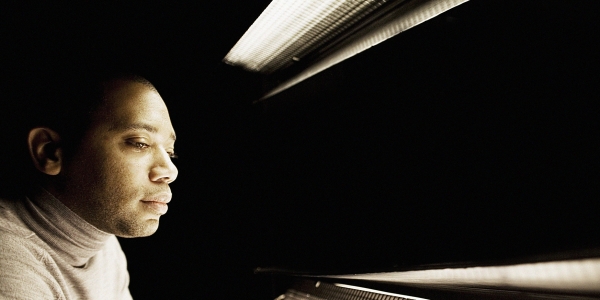Every time you turn the radio on you’ll hear a repetitive and overdone beat from the latest flavour of the month DJ that just got his hands on a pirated copy of FL Studio and is churning out beats at a massive quantity.
Enter Detroit techno pioneer Carl Craig, an ode to the days of true rave parties and classic electronic music. Experimentation has been Craig’s niche ever since he got his hands on a dual deck cassette player which he made his first recordings on. This has led him to be revered as one of the world’s most respected electronic producers.
“Back in the ‘80s I was only a kid, so of course it was a big deal for me to hear these new and innovative sounds,” he says. “Now with techno music, it’s really difficult to find new sounds – ones that are other-worldly or sounds that have never been thought of before, because it really is so common today in electronic music. I’m still impressed with a large majority but it’s hard to find anything these days that breaks out from genre constraints.”
That’s the one thing Craig has never been afraid of doing – experimenting wildly and breaking down the barriers between techno and other genres. Even some of his most successful releases have paid homage to soul and jazz music with a variety of samples that became central to his sound, and helped establish Craig as one of the most important figures to come out of the Detroit techno scene in the early ‘90s.
“I’ve always tried to take genres and break down any types of walls between them,” he says. “With me, doing music that included jazz or classical, it’s always been in my nature. I feel like it’s always been necessary to push the listener into an area that’s out of their comfort zone.
“I’ve always wanted for my music to be visionary because that’s part of what I feel is necessary. I feel like I’ve been able to do this for so long because I try to be fearless when it comes to producing and playing music. Anyone can have a better career than somebody who wants to be all about one style of music because you end up being dated. Look at some of the hip hop DJs out there – they’re incredible, but they’re not daring enough. You can always see a bit more consistency in people who change up their style.”
A reliance on that unique style was not only a driving force behind Craig’s success, but was also considered essential because of the context – the early ‘90s only just saw the advent of the Internet, however file sharing and social media were still a few years away. Now there’s an abundance of music available online through music streaming services and both legal and illegal downloads that have changed the online music landscape forever.
“Technically it should be easier because before the Internet, having a global platform was pretty impossible,” he says. “Especially if you were trying to get a video aired on MTV or a song on the radio. It only takes about 100 people nowadays to circulate what they’ve seen of you online, and sometimes that translates to millions. The possibilities are so much greater these days.
“With the popularity of artists like Martin Garrix or Avicci – they made their start online and gained a following real fast. That was a few years ago now and things are always changing. As long as you have a sound that people like, I think it’s more than possible for anyone these days.”
While Carl claims he’s impressed by many of the world’s top producers and DJs, his attention will quickly turn to Australia this summer. “I’m so excited for Australia,” he says. “I always try to come around the New Year because it’s the summer, as opposed to the top side of the world where it’s sweatshirt time. I always love to come there and I have always had a great time in Melbourne and Sydney.
“It was incredible to be there, [Australians] have so much energy. You are going through a strange time of clubbing especially in Sydney. People want to have fun and let loose, but the possibility of authorities trying to regulate fun and enjoyment is foreign to anyone overseas. I hope it’s gone by the time I get there, I’ll be doing everything in my power to stop it if it’s not.”
By Benjamin Potter

